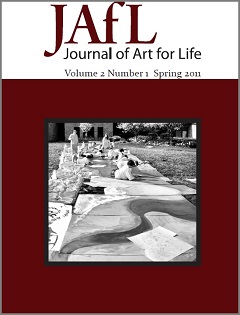Integrated Curriculum and Service Learning: A Platform for Social Transformation
Keywords:
integrated curriculum, Service-Learning, Learning Communities, Collaboration, Arts- Based, Authentic ProductsAbstract
In this article, integrated curriculum practices combined with service-learning pedagogy is examined. The goal of these teaching practices is to empower students and to provide a platform for social transformation. A brief overview of the following theoretical frameworks is presented: integrated curriculum, service learning pedagogy, learning communities, and authentic instruction. An integrated pedagogical model is then illustrated through a case study of a suburban elementary school. Three community-based projects developed collaboratively with students, parents, teachers, and community members are described. The purpose of the case study and the school community’s involvement in the projects was to examine if the outcome included the creation of authentic products as well as schoolcommunity transformation. Additionally, an examination of student participation in the projects was undertaken to assess how project involvement may have contributed to the development of life-long learners and to the acquisition of creative, critical thinking and communication skills.Downloads
Published
2011-03-15
Issue
Section
Articles
License
Authors who publish with this journal agree to the following terms:- Authors retain copyright and grant the journal right of first publication with the work simultaneously licensed under a Creative Commons Attribution License that allows others to share the work with an acknowledgement of the work's authorship and initial publication in this journal.
- Authors are able to enter into separate, additional contractual arrangements for the non-exclusive distribution of the journal's published version of the work (e.g., post it to an institutional repository or publish it in a book), with an acknowledgement of its initial publication in this journal.
- Authors are permitted and encouraged to post their work online (e.g., in institutional repositories or on their website) prior to and during the submission process, as it can lead to productive exchanges, as well as earlier and greater citation of published work (See The Effect of Open Access).


